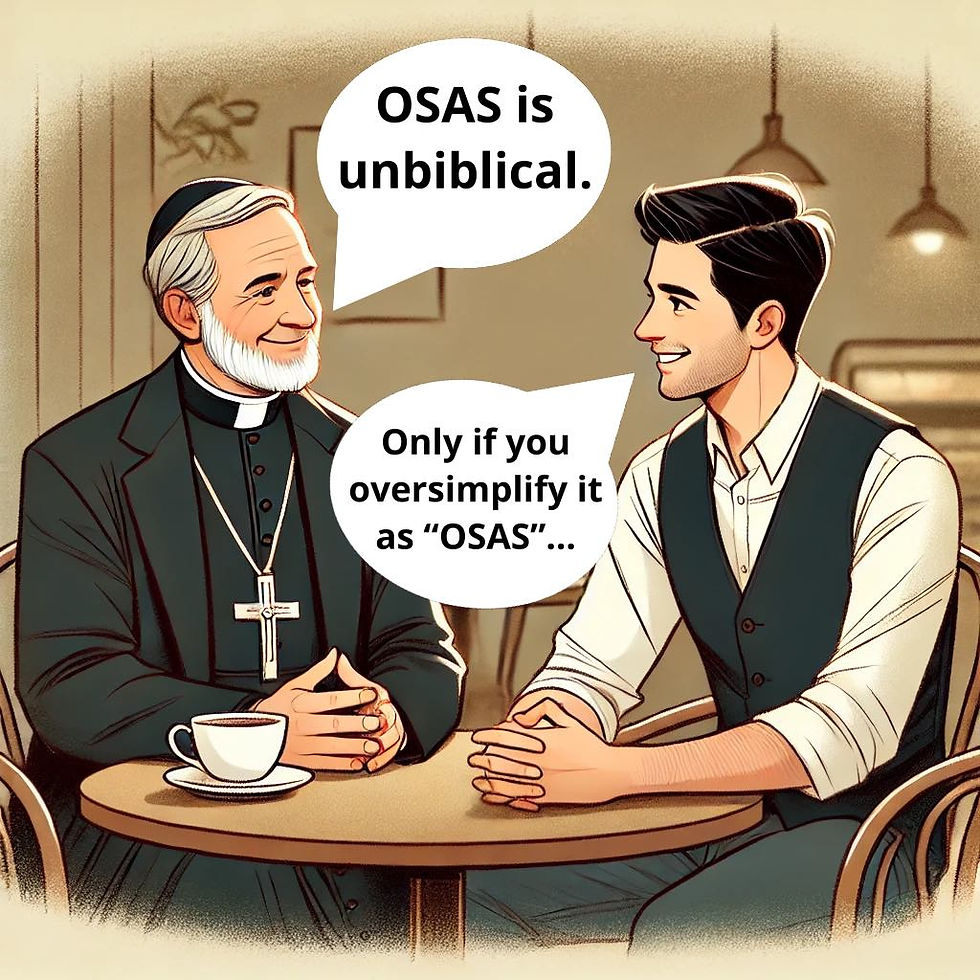Does free will conflict with God's sovereignty?
- Bible Brian

- Aug 21, 2021
- 4 min read
Updated: Jul 29, 2023

Free will is one of the most basic and well known concepts in all of Christianity. Free will is what allows a "very good" world (Genesis 1:31), created by a Holy God, whose works are always perfect (Deuteronomy 32:4), and who literally cannot tempt anyone to evil (James 1:13), nevertheless contains much sin, and much of the results thereof.
But there are a surprising number of Christians in the world, particularly Calvinists, who insist that free will is in direct conflict with the sovereignty of God. If we are able to resist God's will, are we not greater than Him in one respect? Picture, if you will, a simple chess board. In chess, there are rules that must be abided by. Not least of these rules is that each player controls only one color. The white player cannot move the black pieces, nor can the black player move the white pieces. Each player is fully in control of their own pieces.
Now consider Dr. Jonathan Sarfati. Sarfati, whose personal bio can be found here, is an excellent chess player. Sarfati is so skilled that he can play against multiple opponents at once, completely blindfolded, and without touching the boards himself. Rather, moves are communicated to him. Suffice to say, he is significantly more skilled than I. Imagine, then, if I attempted to take him on. If Dr. Sarfati does not even need to see his own pieces, suffice to say he could beat me without touching mine either. While I maintain full control over my pieces, Dr. Sarfati would be more than capable of winning every time. This is because a skilled chess player can predict, account for, and even manipulate their opponent's strategies before they are enacted. Taking His omniscience into account, God would be a better chess player even than Dr. Sarfati.
God's omniscience is also what makes Him a better life player than any of us. He is not even slightly fazed by our free will. Whether we rebel or obey, God knows what He's doing, including how to enforce His will in spite of the freedom He granted us.
Throughout scripture, we see this concept repeated constantly. God's will is never impeded, even potentially, by our choices. In the Old Testament, we have the example of Esther: "For if thou altogether holdest thy peace at this time, then shall there enlargement and deliverance arise to the Jews from another place; but thou and thy father's house shall be destroyed: and who knoweth whether thou art come to the kingdom for such a time as this?" (Esther 4:14). Similarly, in the New Testament, Christ Himself said "...I tell you that, if these should hold their peace, the stones would immediately cry out." (Luke 19:40). From these, we see that God will always have the victory: His purposes will be fulfilled. The question is, do we win with Him, or lose against Him?
Furthermore, we see that God does occasionally remove that option. In the Old Testament, we have Sodom, Tyre, and Sidon. According to Jesus, "for if the mighty works, which were done in you, (Chorazin and Bethsaida) had been done in Tyre and Sidon, they would have repented long ago in sackcloth and ashes." (Matthew 11:21). Similarly, Jesus said "...if the mighty works, which have been done in thee (Capernaum), had been done in Sodom, it would have remained until this day." (Matthew 11:23). From this, we see that these people would have so genuinely repented as a nation that God would have prospered them for it! Had Jesus gone to these cities, their faith would have been passed down through the generations. The only reason they didn't is because, for reasons known only to Himself, God chose to destroy them rather than send Christ. Probably because penitent people don't typically nail their God to a cross.
But we also see that even in Jesus' time, there were those who would so likely have repented that in order to prevent them doing so, Jesus spoke cryptically. Jesus spoke in parables, and used some very strange metaphors, which constantly lost Him followers, and even gained Him enemies. In both Matthew 13:13-15, and Mark 4:10-12, Jesus explains the reason for this. He refers to Isaiah 6:9-10, which says "He said, “Go and tell this people: “‘Be ever hearing, but never understanding; be ever seeing, but never perceiving.’ Make the heart of this people calloused; make their ears dull and close their eyes. Otherwise they might see with their eyes, hear with their ears, understand with their hearts, and turn and be healed.”"
Note, Jesus didn't speak plainly to them, then force them to reject Him. Rather, He spoke to them in confounding ways, which they did not understand. Jesus had a goal (the cross), and He knew how to make it happen (approach an already hard-hearted people, confuse them with parables and metaphors, expose their sin and hypocrisy etc.). At no point was their free will affected, yet Christ achieved His goals.
We see, then, how God's sovereignty is not in question by those who accept free will, but by those who deny it. Those who accept free will know that God is too great to be thwarted even by the most conniving of sinners, but those who deny free will must contend that the only way for Him to win is to become as conniving as we are. In this giant chess game, God is already an infinite number of moves ahead. Nothing we can do can affect His purposes. He does not need to force us to violate His will in order to make us fulfil it, and if you contend that He needs to stoop so low, it is you who disputes His sovereignty. Or maybe... that's what God wants me to think?






Comments